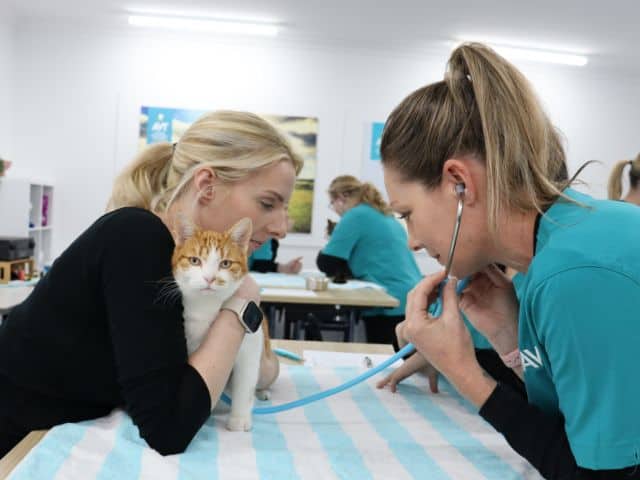
Working with animals can be a fulfilling and rewarding career path for those who have a deep passion for their welfare and well-being. In addition to this, there are four key factors that contribute to success in this field.
Resilience is crucial as it allows individuals to cope with the emotional challenges that come with witnessing animals in need of care and the sometimes difficult process of rehabilitation. The ability to bounce back from setbacks and maintain a positive mindset is essential for providing the best care possible.
Working with animals often involves long hours, physical labour, and multitasking. From cleaning enclosures to administering treatments, a strong work ethic is necessary to ensure the well-being of animals and the smooth operation of daily tasks.
Working with animals involves understanding and connecting with their emotions and needs so you can provide comfort, support, and appropriate care tailored to each individual animal and their situation.
Treating animals with kindness, compassion, and respect not only improves their well-being but also establishes trust and builds a positive relationship. Kindness extends beyond the animals themselves and also involves working collaboratively with colleagues and the wider community.
Combining resilience, hard work, empathy, and kindness forms a strong foundation for working with animals. These factors enable individuals to navigate the challenges, provide the best care possible, and maintain a positive and compassionate approach towards both the animals and the people they work with.
If you think you have what it takes to work in the animal care industry, the next step is to decide what type of role or job you see your future self undertaking. There are a diverse range of roles across many organisations and businesses. Here’s some helpful links to get you started.

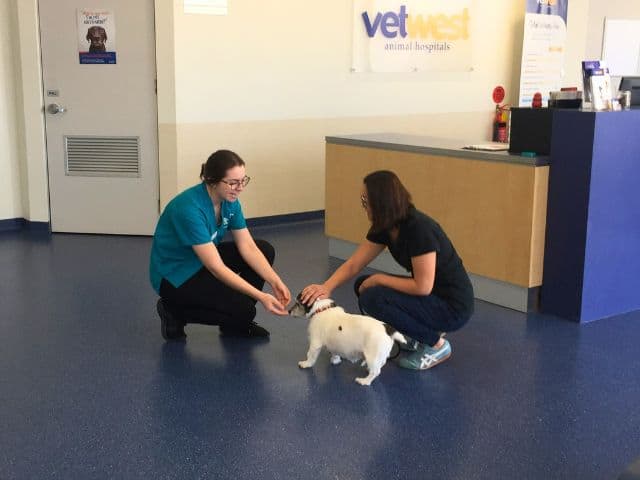
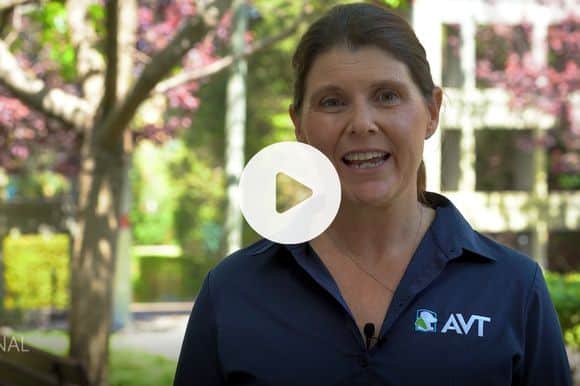
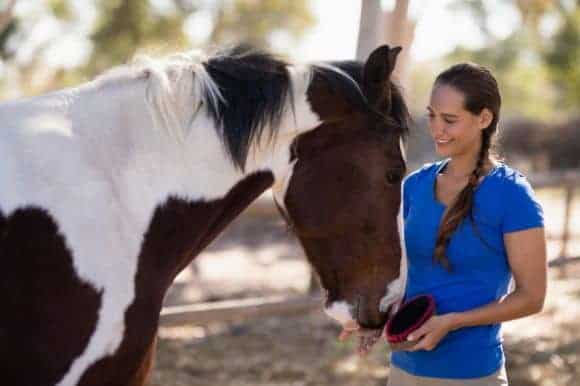
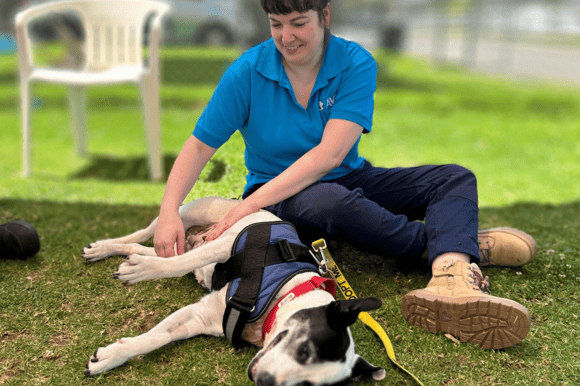
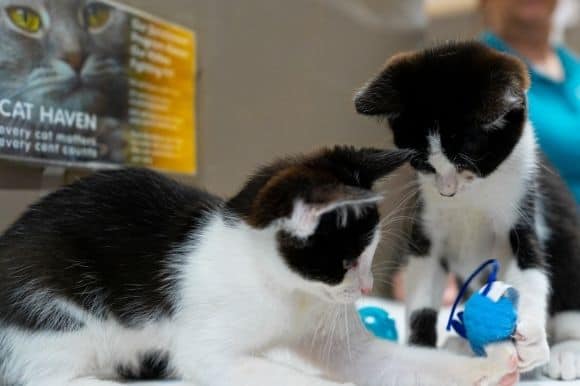
To start on your journey of working with animals, the most effective initial step is to gain hands-on experience, enabling you to interact directly with animals and build your confidence. Depending on your situation, here are four suggestions we recommend to fast-track your career.
Learning how to care for your own animals or even those of a friend can provide valuable firsthand animal care experience. You can quickly gain insights into the well-being of animals and their behaviours whilst learning basic animal husbandary skills.
Volunteering can offer a unique opportunity to gain practical knowledge of the animal care industry and its day-to-day operations. You can also establish meaningful connections to enhance your opportunities for the future.
By actively engaging in work experience, you can try your hand at working in an animal care environment, gain some basic skills and have a better understanding of what is involved in a future career including the different roles available.
Obtaining a qualification in animal care is an important step towards building a successful career in the industry. Pursuing a relevant course will equip you with expert skills and knowledge and give you a strong foothold in the industry to pursue a successful career.
Learning how to care for your own animals or even those of a friend can provide valuable firsthand animal care experience. You can quickly gain insights into the well-being of animals and their behaviours whilst learning basic animal husbandary skills.
Volunteering can offer a unique opportunity to gain practical knowledge of the animal care industry and its day-to-day operations. You can also establish meaningful connections to enhance your opportunities for the future.
By actively engaging in work experience, you can try your hand at working in an animal care environment, gain some basic skills and have a better understanding of what is involved in a future career including the different roles available.
Obtaining a qualification in animal care is an important step towards building a successful career in the industry. Pursuing a relevant course will equip you with expert skills and knowledge and give you a strong foothold in the industry to pursue a successful career.
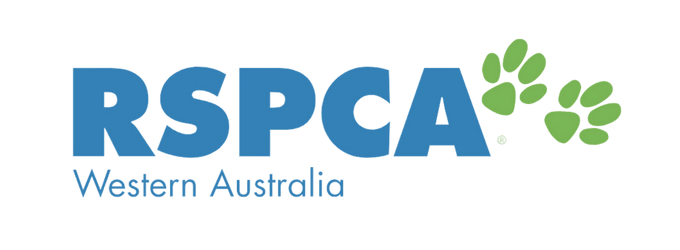
Another great way to find out more information about working with animals is to learn from others. Learn from RSPCA WA team members, Esabella and Alison as they talk about their roles and journey in the industry and working in one of Perth’s leading animal rescue and welfare facilities.
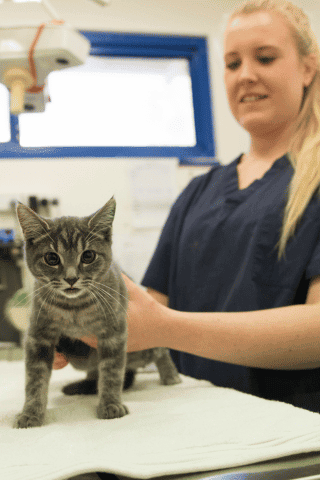
Why did you want to become an Animal Attendant?
After spending two decades of working within the human services and glazing industry, I always felt like I was missing something in my working life. As I have been a previous volunteer at RSPCA working in its kennels, the opportunity came about where I was able to apply for an Animal Attendant position and thus have been here ever since, nearly seven years ago.
What are your main responsibilities?
As an animal attendant, my duties are to feed and medicate the animals, clean their living areas, provide them with enrichment, giving some animals especially dogs medicated baths, and just basically everything that makes the shelter run smoothly.
At the present time, I’m also an Animal Welfare Officer, working with the Inspectorate. My main role is to support the inspectors performing various duties like cat trapping, animal collection/transport, attending ambulance requests, food drop offs and admin duties.
What is the best part of the job?
I love seeing the progress of the animals from when they first enter our care to when they get adopted.
What did you have to do to become an Animal Attendant with the RSPCA?
I completed a Certificate II of Animal Studies although back in 2007. I’ve also volunteered previously with RSPCA WA, Native Animal Rescue and Guide Dogs.
What advice do you have for people who want to become an Animal Attendant?
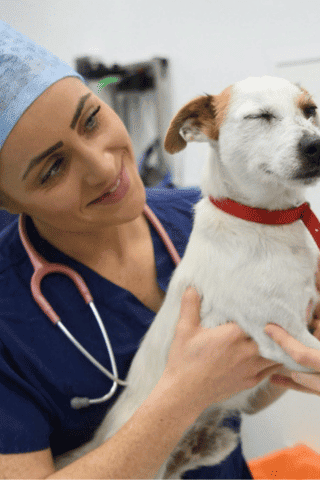
Why did you want to become a Vet Nurse?
My first job was working as an Animal Attendant in an animal shelter. During this time, I gained valuable insight into the world of veterinary care and developed an appreciation for the essential role that veterinary nurses play in the care and recovery of animals that are injured, unwell, or neglected.
What are your main responsibilities as a Vet Nurse?
Being a Veterinary Nurse means that I have a lot of different responsibilities. My day-to-day work involves doing things like cleaning and sterilising equipment and instruments, as well as feeding, medicating, and monitoring patients. I also help prepare animals for surgery and assist with radiology, take blood samples, and run blood tests. And on top of all that, I spend time educating pet owners about how to take care of their pets.
What is the best part of the job?
Working as a Veterinary Nurse at the RSPCA is slightly different from working in a typical veterinary clinic. Animals can come to us nervous, scared, mistreated and injured. The best part of my job is helping these animals through their recovery so they can be adopted into their forever homes with loving and caring families.
What is the best part about working for the RSPCA?
Working closely with a committed and compassionate veterinary care team who are always asking, “What can we do to improve the quality of life for this animal?” Being part of this team, I am always learning something new and pushing myself to be an even better Veterinary Nurse.
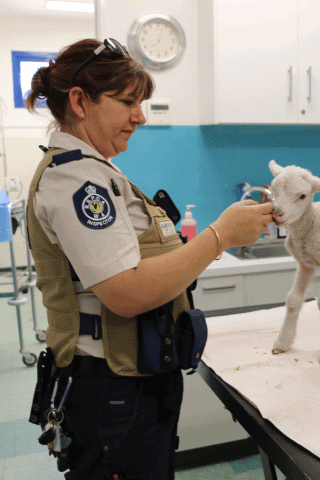
Why did you want to become an RSPCA Inspector?
After enrolling in AVT’s RSPCA Program, I was extremely happy to be given an opportunity to work as Animal Attendant at the RSPCA. During that time, I learned about the inspectors role and decided that it was something I would love to do… to be able to rescue animals from situations they were incapable of changing themselves, and holding people accountable in extreme cases where neglect and cruelty were occurring.
What are your main responsibilities?
My responsibilities are to respond to reports lodged with the RSPCA detailing cruelty or neglect. I attend the address in question and assess the animals and questions detailed in the report. From there, I have a decision to make regarding how to proceed. Some are very straight forward and some are very complicated. I monitor each report until we achieve a satisfactory outcome for the animal/s in question. I will also transport animals to the shelter for care, housing, and rehoming and in extreme cases where a prosecution is required, I prepare a brief detailing offence under the Animal Welfare Act and pass that to my supervisor for review. It then passes to our lawyers for prosecution.
What is the best part of the job?
There have been many animals’ lives that have significantly changed for the better as a result of my work. I never know what situations I will be faced with, and I enjoy the flexibility of triaging reports, and having decision making capabilities. I’ve also had the privilege to educate and help people make difficult decisions regarding the welfare of animals in their care. And when it comes to enforcement which is the main purpose of my role, I’ve been able to hold people accountable that have subjected animals to cruelty or neglect.
What did you do to become an Inspector with the RSPCA?
I completed the Certificate III in Animal Care Services – RSPCA Program through AVT. My study days at the RSPCA were filled with determination to learn and love for the animals in my care. I held the staff at RSPCA in high regard and questioned everything to learn. I applied for an Animal Attendant job as soon as I could and then was asked to move into adoptions as well. I worked very hard, but it was a total labour of love because this is where I wanted to be. When an Inspector role was offered and I thought I was ready, I was not successful upon my first application but was offered a role on a casual basis. From there, I progressed to full time and the rest is history. In saying that, I learn every day and am sure I will continue to do so.
What skills are key to your role?
The main skills required for the role are:
What advice do you have for people who want to become an Inspector?
My advice for anyone who wants to be an Inspector would be to understand it’s a lifestyle, not a job. You must embrace all aspects of the role and be dedicated to achieving the best outcomes. You will not be able to come home and forget about the situations and animals you encounter. It’s just the way it is. It’s highly rewarding, stressful at times (because everyone thinks you can solve everything !!) but wholly the best job. I love it. It is where I have found my place in the world, and I would not give it up for anything… well, almost!! I encourage anyone who has the passion to strive to achieve. Remember to be humble. Respect the people you work with and around. We are all in this together and together we achieve. An Inspector is just one cog in the wheel. It takes a village.
If you would like to know more about the RSPCA, watch this inspiring video as we embark on a journey to explore the diverse and rewarding careers available within the RSPCA. From animal rescue and rehabilitation to advocacy and veterinary care, this video sheds light on the diverse opportunities that await those who wish to combine their love for animals with their professional aspirations. Join us as we uncover the pathways to a fulfilling career working with the RSPCA, where compassion and dedication come together to create a brighter future for our furry friends.
Read our 6 Steps to getting started in the animal care industry
If you are a high school student, find out what course is best for you
Thinking about a change, and need some help on your decision.
About Our Schools Program
About the RSPCA Program
About Vet Nurse Pathway
Study Online
The RSPCA WA and AVT have collaborated closely since 2019 to create a safe and supportive learning environment at the RSPCA Malaga Animal Care Facility. This partnership aims to help students acquire expert knowledge in animal care, behaviour, handling, and animal welfare.

The RSPCA WA is based in Malaga where they operate an animal
shelter. They are also responsible for enforcing the Animal Welfare
Act throughout WA. On any given day of the year they have more than
200 animals in their care and they deal with more than 16,000 cruelty
complaints each year.

For more than 25 years, Applied Vocational Training (AVT) has provided accredited courses for Veterinary Nurses, Animal Carers and Animal Behaviour and Training students. AVT caters to a diverse range of students, from high-school aged students just starting their career paths to more mature students seeking a change in their career.
The leader in delivery of Australian Nationally Recognised Qualifications including ACM20121 Certificate II in Animal Care (formerly Animal Studies), ACM30122 Certificate III in Animal Care Services, ACM40818 Certificate IV in Veterinary Nursing and ACM40322 Certificate IV in Animal Behaviour and Training.
Applied Vocational Training (AVT) delivers a range of qualifications and short courses for students wishing to pursue a career working with animals.
AVT is a Registered Training Organisation and a VNCA Platinum Education Partner based in Perth, Western Australia. AVT provides on-campus and online courses to students studying throughout Australia. More about us →
We acknowledge the traditional owners of the land where our campus is based, the Whadjuk people of the Noongar Nation. We pay our respects to Elders past, present and emerging and we commit to walking alongside our indigenous brothers and sisters. We extend that respect to the Aboriginal and Torres Strait Islanders in our community.
Applied Vocational Training (AVT) is proudly a Registered Training Organisation (RTO 5273).